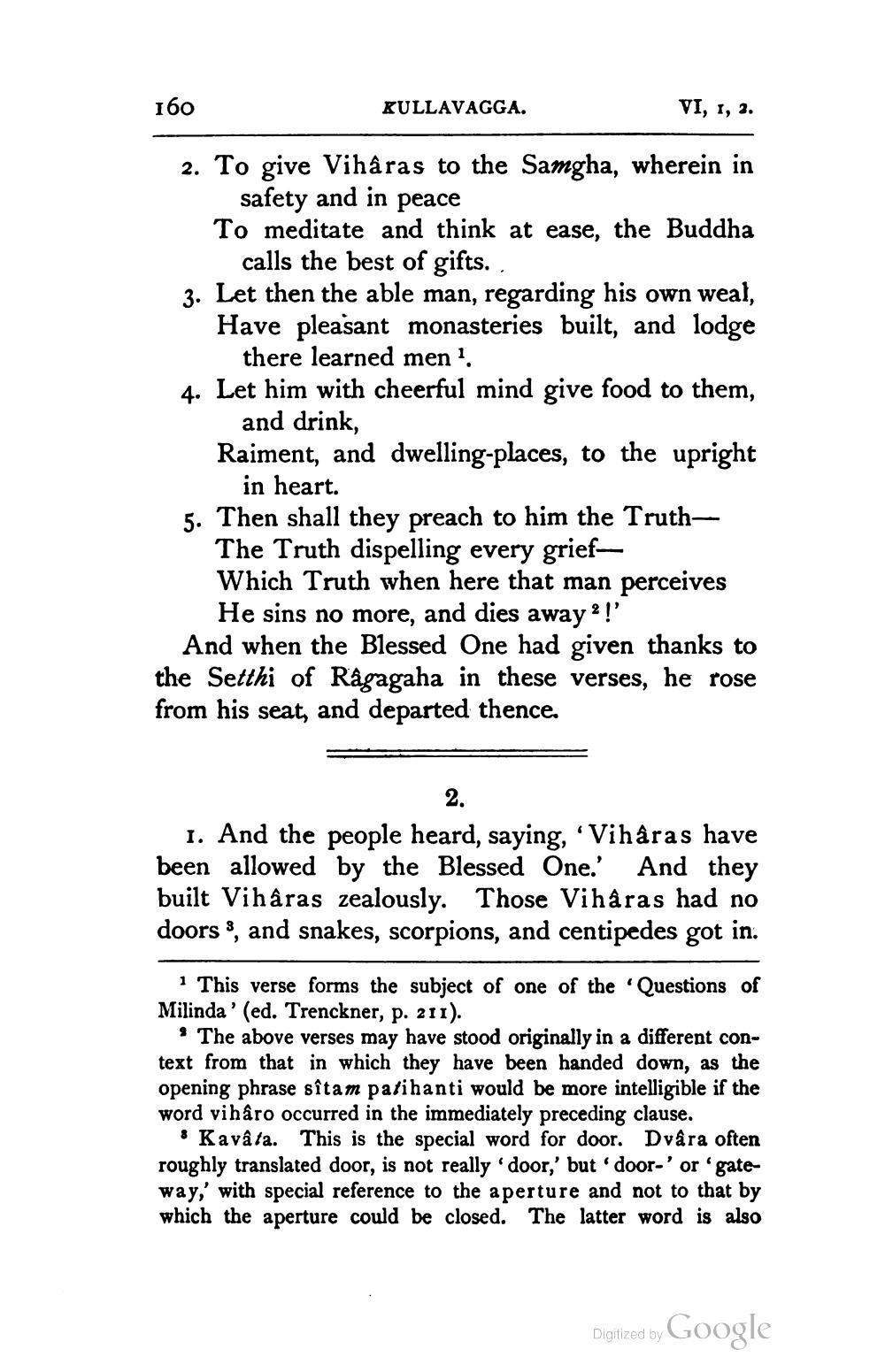________________
160
KULLAVAGGA.
VI, 1, 3.
2. To give Vihâras to the Samgha, wherein in
safety and in peace To meditate and think at ease, the Buddha
calls the best of gifts. . 3. Let then the able man, regarding his own weal, Have pleasant monasteries built, and lodge
there learned men ? 4. Let him with cheerful mind give food to them,
and drink, Raiment, and dwelling-places, to the upright
in heart. 5. Then shall they preach to him the Truth
The Truth dispelling every griefWhich Truth when here that man perceives
He sins no more, and dies away ?!' And when the Blessed One had given thanks to the Setthi of Râgagaha in these verses, he rose from his seat, and departed thence.
1. And the people heard, saying, "Vihâras have been allowed by the Blessed One. And they built Vihâras zealously. Those Viharas had no doors s, and snakes, scorpions, and centipedes got in.
This verse forms the subject of one of the Questions of Milinda' (ed. Trenckner, p. 211).
* The above verses may have stood originally in a different context from that in which they have been handed down, as the opening phrase sîtam patihanti would be more intelligible if the word viharo occurred in the immediately preceding clause.
& Kavâ ta. This is the special word for door. Dvâra often roughly translated door, is not really door,' but door-' or 'gateway,' with special reference to the aperture and not to that by which the aperture could be closed. The latter word is also
Digitized by
Digilzed by Google




